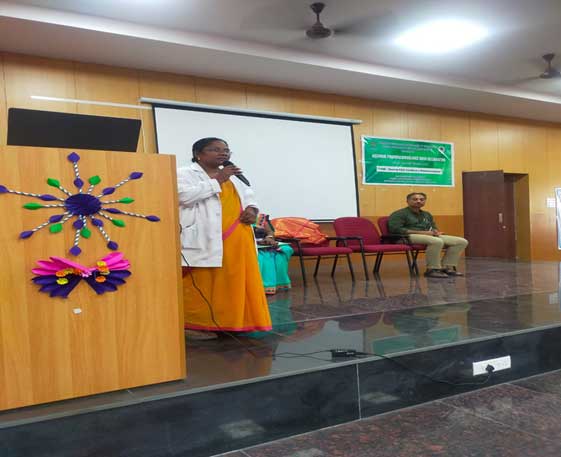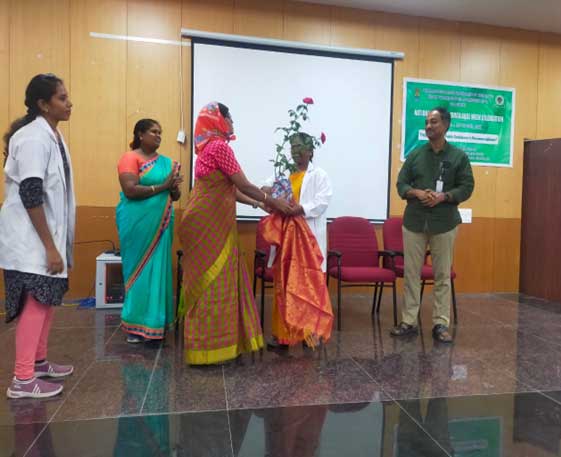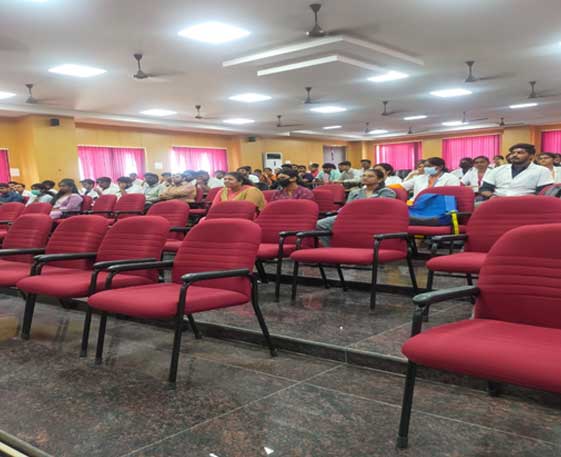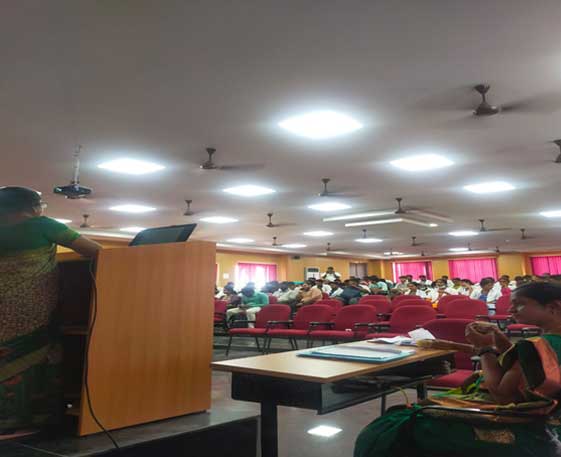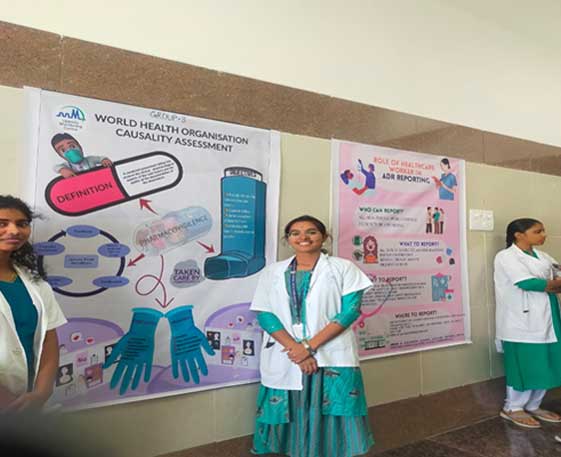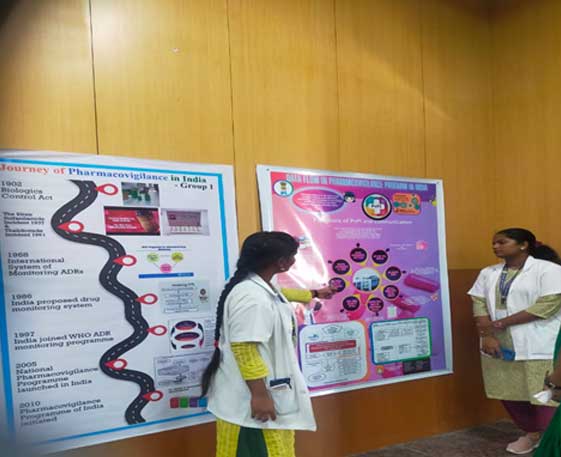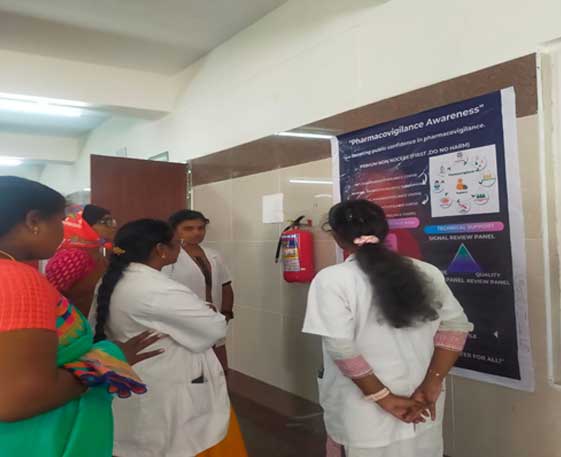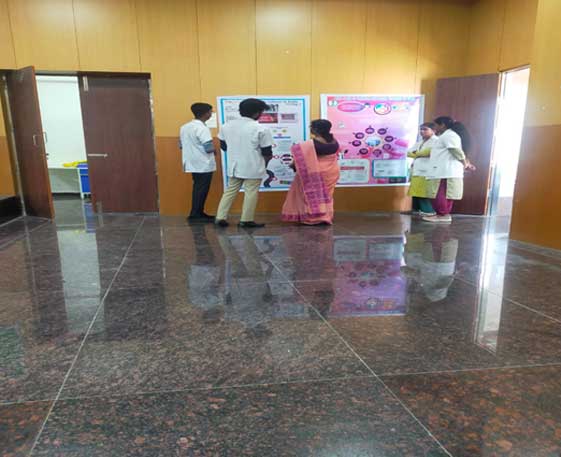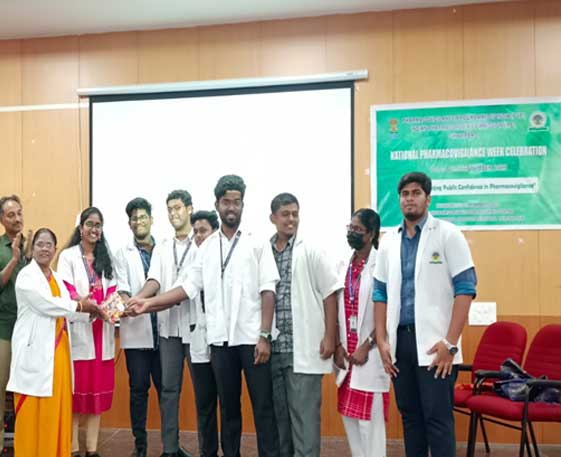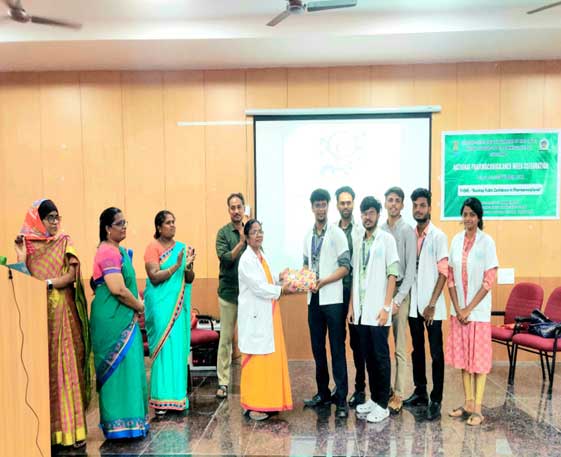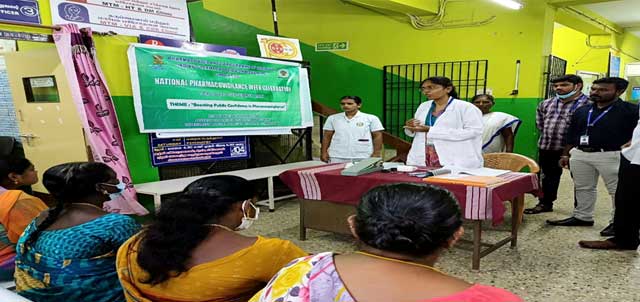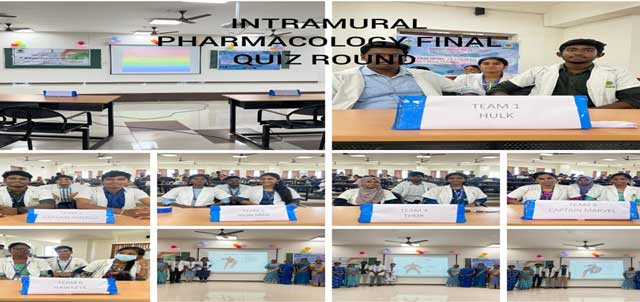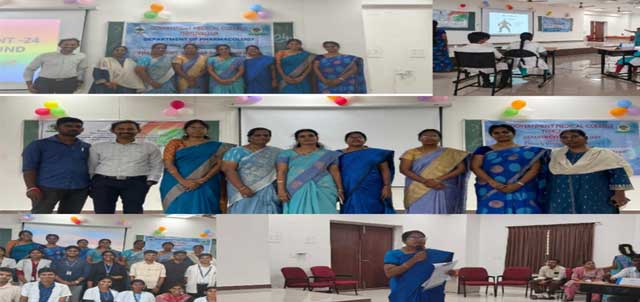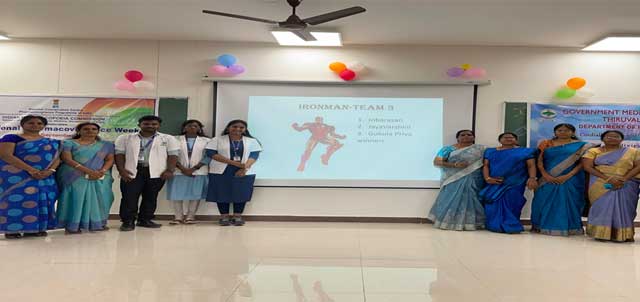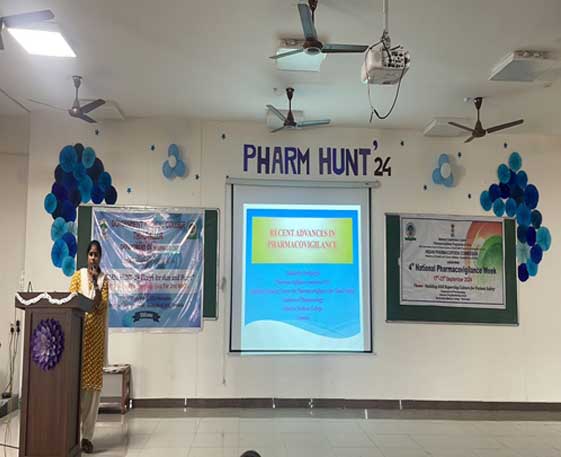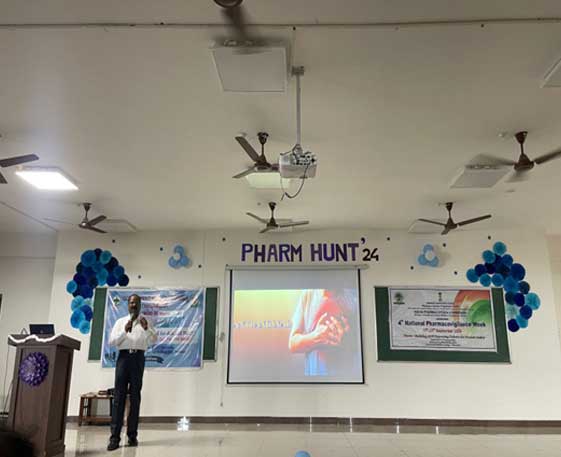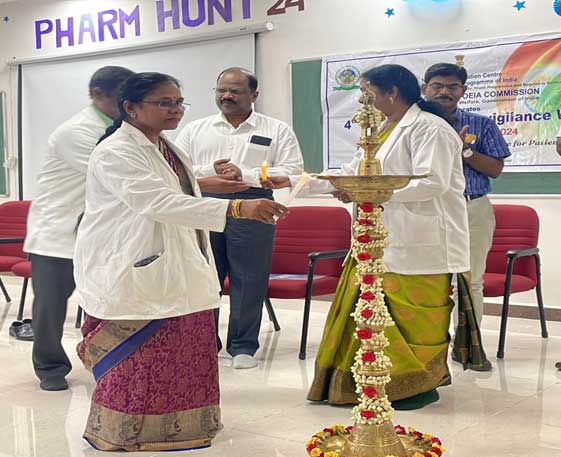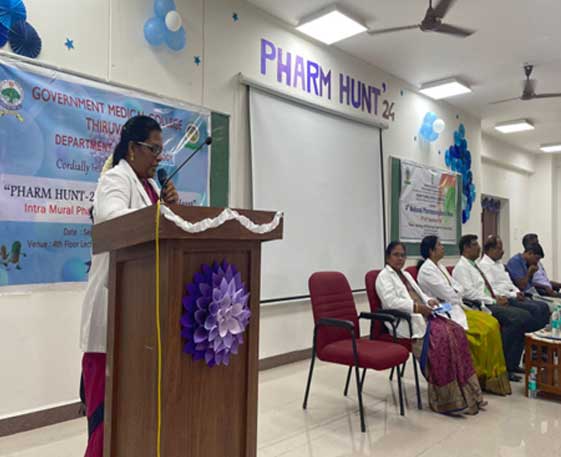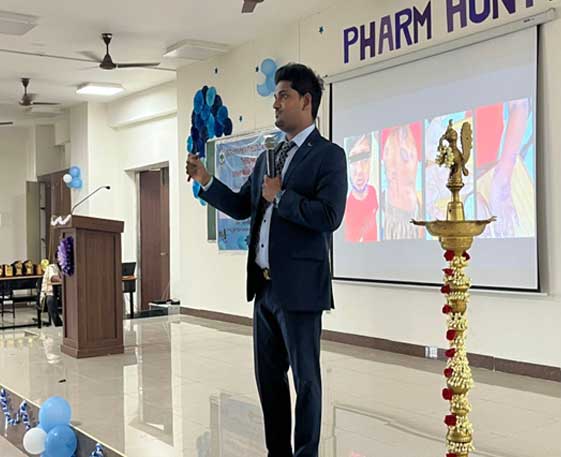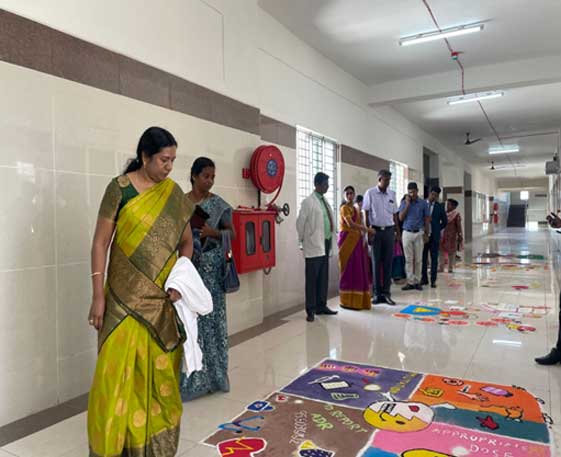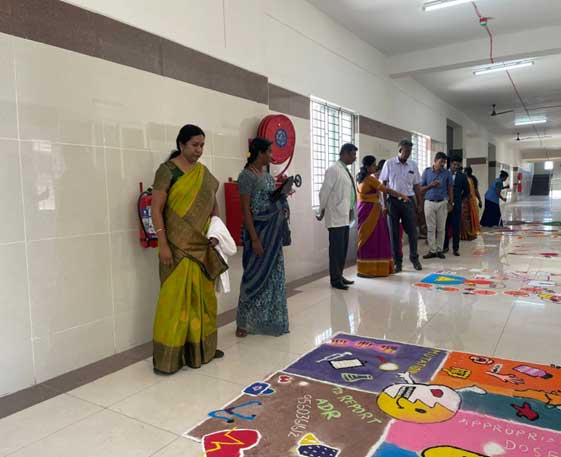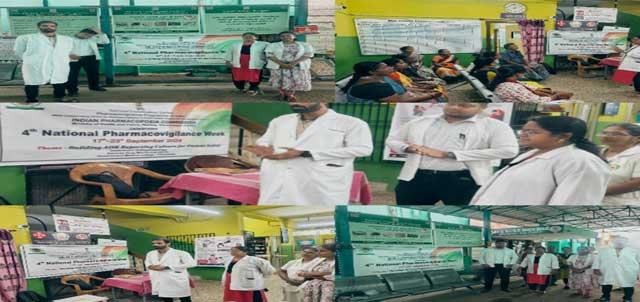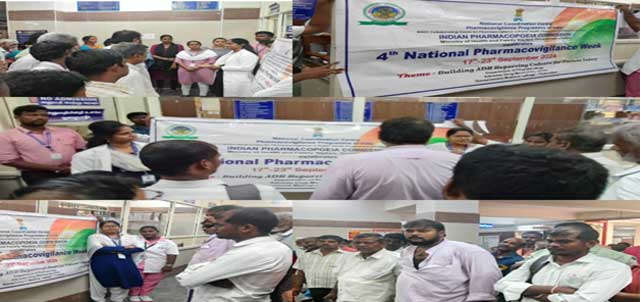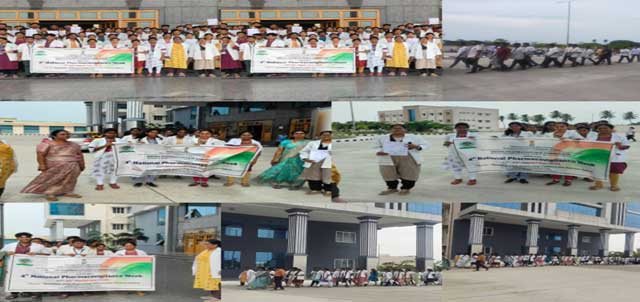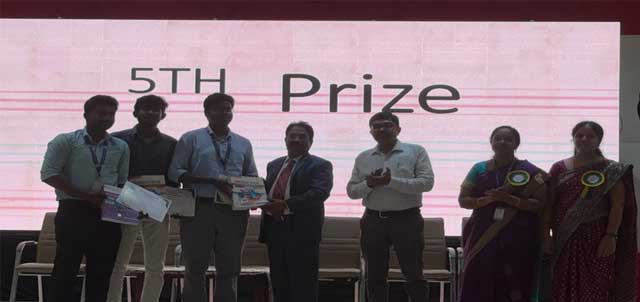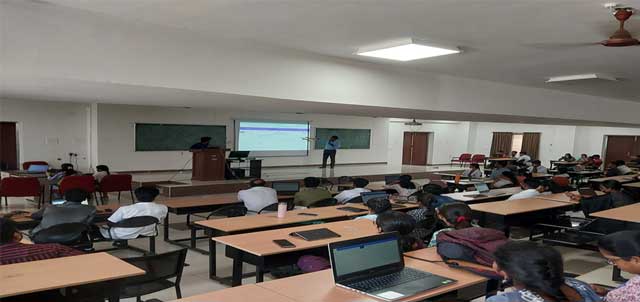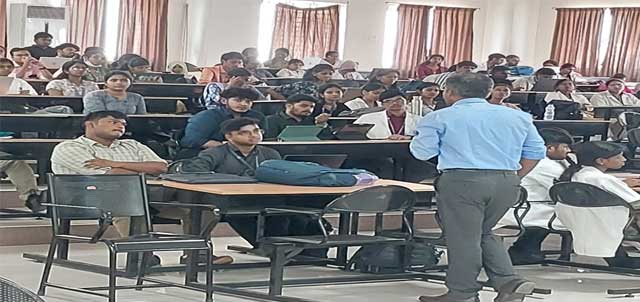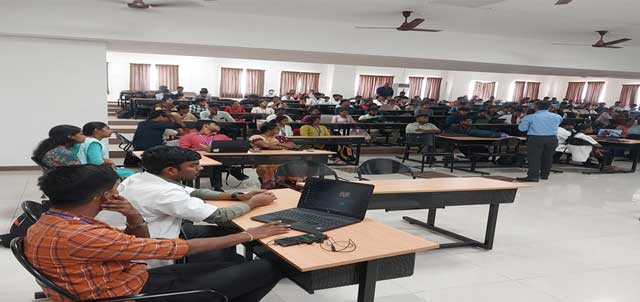CME on Good clinical Practice- An update Date : 12.04.23
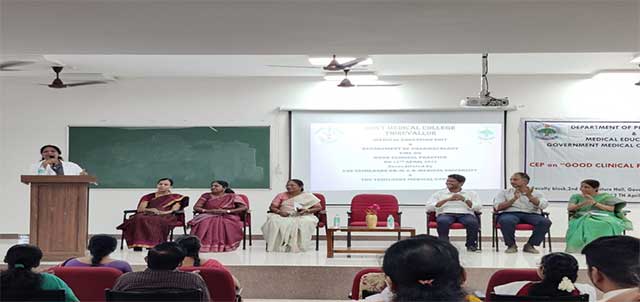
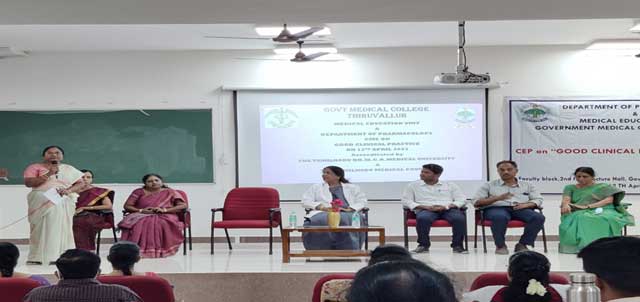
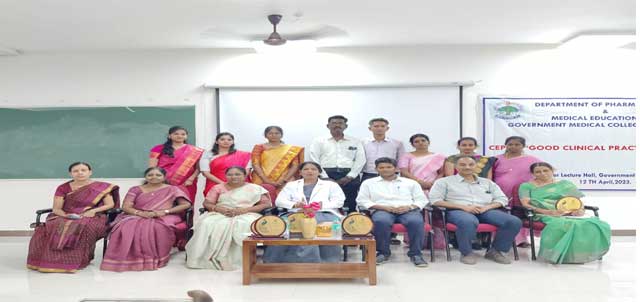
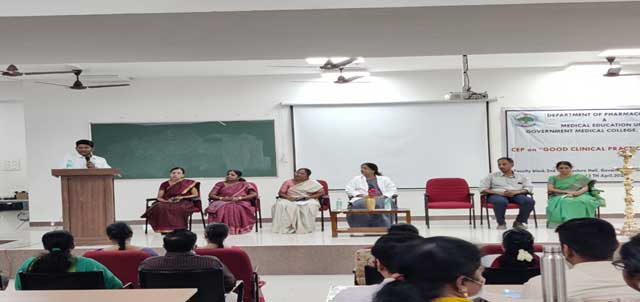
The Department of Pharmacology is a dynamic and integral part of the medical sciences, dedicated to the study of drugs and their effects on biological systems. It bridges the gap between basic science and clinical practice, empowering students and researchers to understand the mechanisms of action, therapeutic uses, adverse effects, and rational use of medications.
With a strong focus on academic excellence and innovation, the department aims to cultivate critical thinking, ethical responsibility and research aptitude among students. Our curriculum blends foundational knowledge with hands-on practical training, ensuring that graduates are well-equipped to contribute to patient care, drug development, and public health.
| S. No. | NAME | QUALIFICATION | DESIGNATION | REGN No. | PHOTO |
| 1 | Prof.Dr.B.Sharmila | MBBS, MD (PHARMACOLOGY) | PROFESSOR & HOD | 68130 |  |
| 2 | DR. N. ASVINI | MBBS, DDVL,MD (PHARMACOLOGY) | ASSOCIATE PROFESSOR | 74146 |  |
| 3 | DR. E. AKILA | MBBS, MD (PHARMACOLOGY) | ASSISTANT PROFESSOR | 79944 | 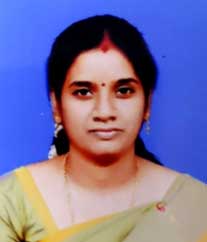 |
| 4 | DR. D. NISHANTHINI | MBBS, MD (PHARMACOLOGY) | ASSISTANT PROFESSOR | 94279 | 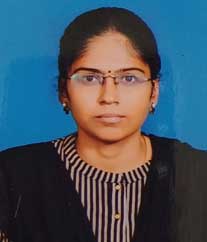 |
| 5 | DR. G. AMUDHA | MBBS, MD (PHARMACOLOGY) | SENIOR RESIDENT | 72488 |  |
| 6 | DR. C.D. JAYPRIYA | MBBS, DDVL,MD (PHARMACOLOGY) | SENIOR RESIDENT | 79922 | 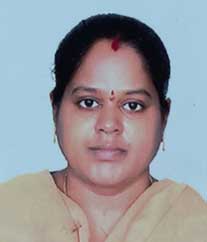 |
| 7 | DR. E. HEPHZIBAH MAGDALENE | MBBS, MD (PHARMACOLOGY) | SENIOR RESIDENT | 84470 | 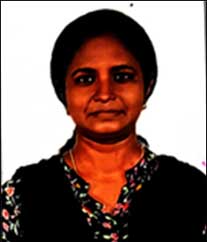 |
| 8 | Dr.ANSHA | MBBS, MD (PHARMACOLOGY) | TUTOR | 95419 | 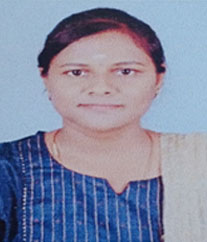 |
| 9 | DR. NARESH KUMAR. P | MBBS, MS (ORTHOPAEDICS) | TUTOR | 146158 |  |
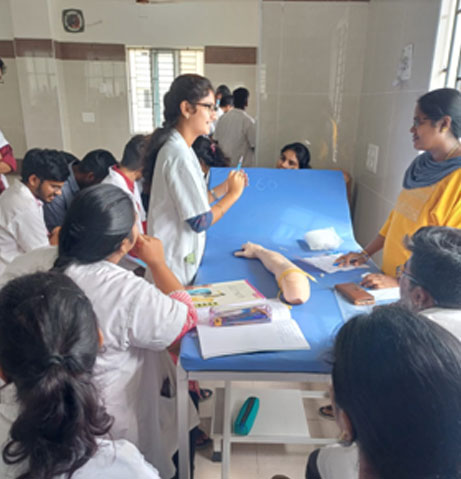
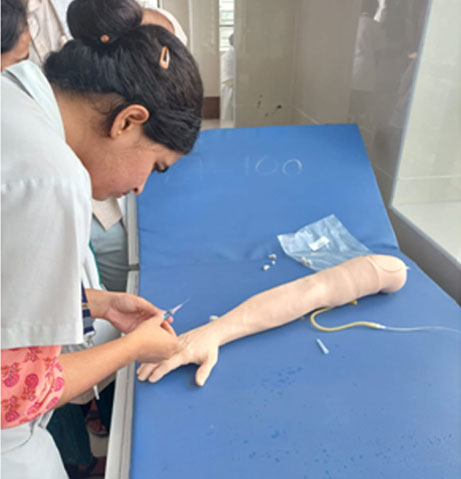
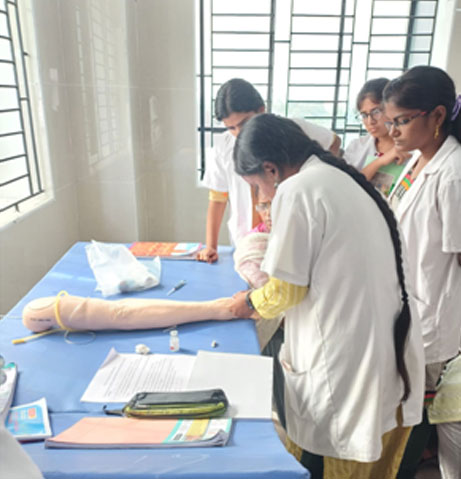
Provisioned with instruments and resources for undergraduate learning and research
Set up with simulation software to teach experimental pharmacology ethically and effectively.
Stocked with standard textbooks, reference books, and national/international journals for academic use.
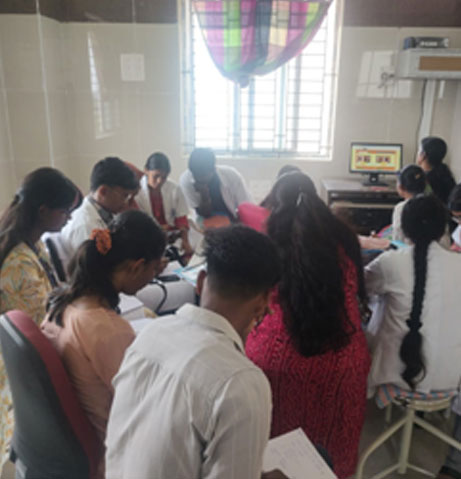
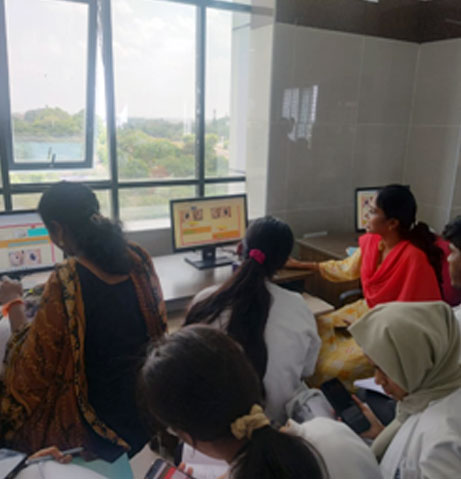
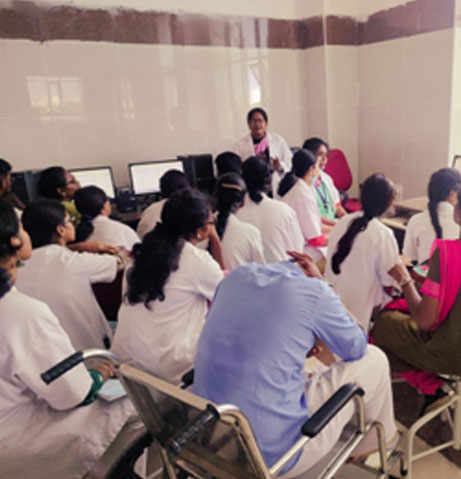
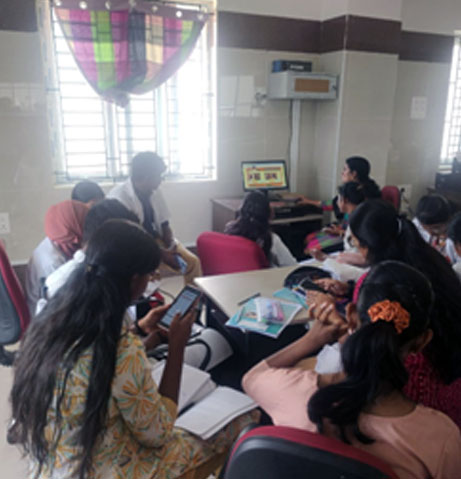
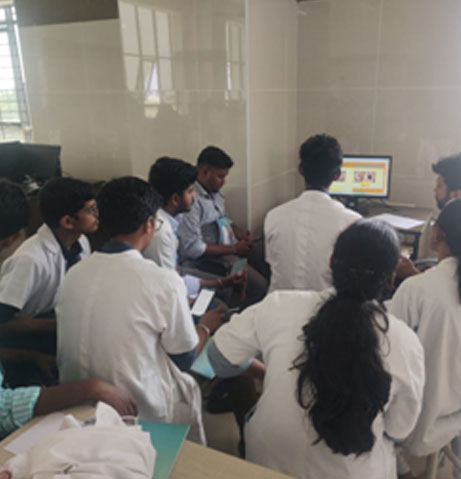
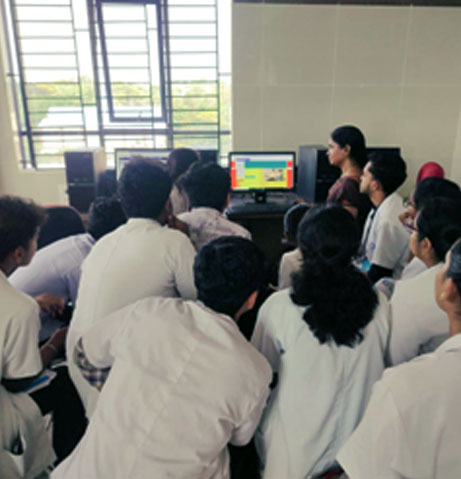
Designed for smooth departmental functioning with internet access and administrative support.
The Department of Pharmacology plays a vital role in medical education, research, and clinical practice support. Its scope of services includes:
Imparting knowledge on drug mechanisms, therapeutics, adverse effects, and rational use of medicines through lectures, practicals, and case-based learning.
supporting rational drug use, pharmacovigilance activities, and drug information services in collaboration with clinical departments.
Active participation in Adverse Drug Reaction Monitoring (PvPI) and promoting drug safety through continuous surveillance and reporting to PVPI
Regular auditing of hospital prescriptions to evaluate rationality, adherence to standard treatment guidelines, and identify issues like polypharmacy or potential drug interactions. Feedback is shared with prescribers to encourage safe and evidence-based prescribing.
Active involvement in the functioning of the IEC by reviewing and evaluating research proposals to ensure ethical conduct, scientific validity, and participant safety in clinical and biomedical research.
Use of modern software-based simulation tools as ethical and effective alternatives to animal experimentation in pharmacology teaching.
Assisting in formulary preparation, development of standard treatment guidelines, and promoting rational drug use in the hospital.
Conducting CME’s and training sessions to update knowledge in pharmacology and therapeutics.
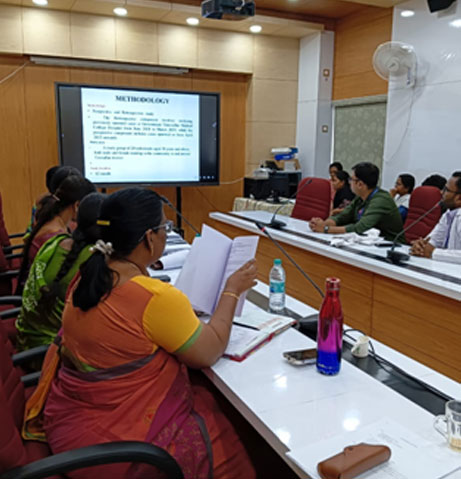
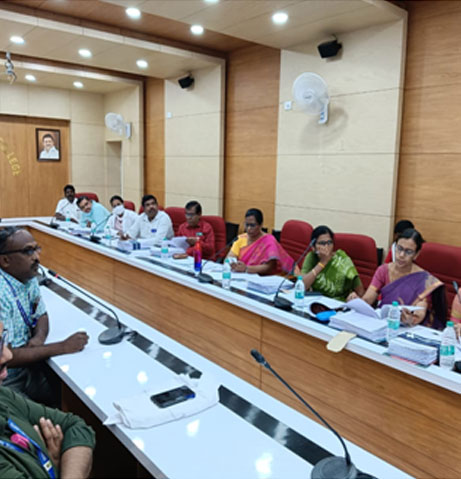
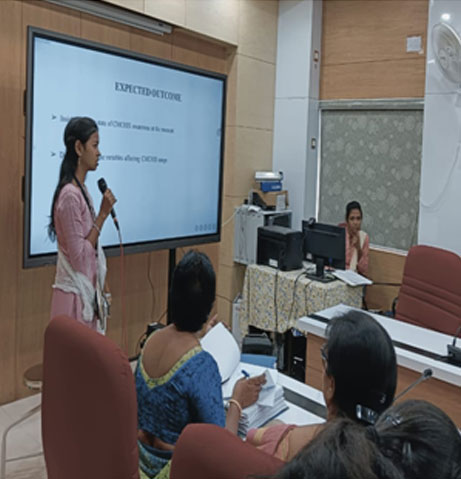
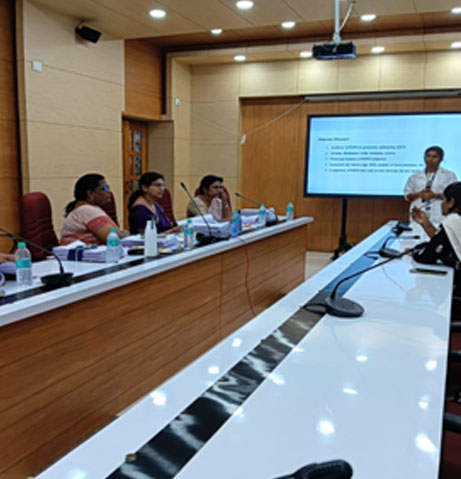
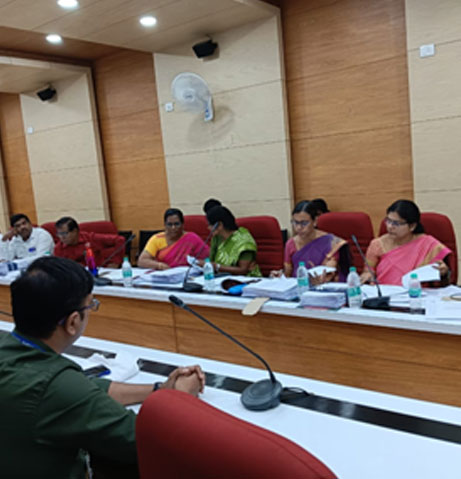
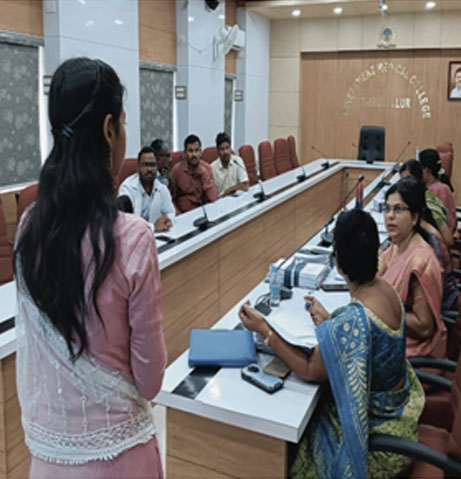
The Department of Pharmacology actively engages undergraduate medical students (MBBS) through a variety of teaching-learning methods aimed at building a strong foundation in rational pharmacotherapy and clinical application of drugs. Key academic activities include:
Regular classroom lectures covering general, systemic, and clinical pharmacology. Use of audiovisual aids, animations, and case-based illustrations for better understanding.
Interactive sessions to reinforce complex topics. Focus on discussion, problem-solving, and clarification of doubts
Clinical pharmacology exercises including prescription writing, dose calculation, and
identification of adverse drug reactions.
Problem-based learning (PBL) and case scenarios to enhance clinical reasoning.
Simulation-based learning using Computer-Assisted Learning (CAL) for experimental
pharmacology.
Prescription Writing Hands-on training in writing rational and legible prescriptions
based on standard treatment guidelines. Critical appraisal of common prescription
errors.
Encouraging students to present drug-related topics to develop communication and analytical skills. Peer discussions under faculty guidance.
Learning through visual aids, drug models, charts, and historical drug exhibits
Regular formative assessments: MCQs, structured written exams, OSPEs (Objective
Structured Practical Examinations).
Constructive feedback given to improve
academic performance.
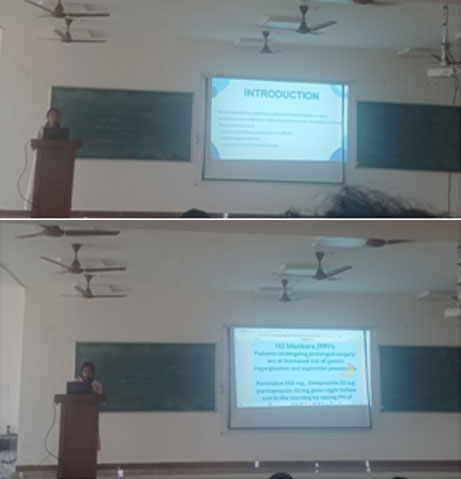
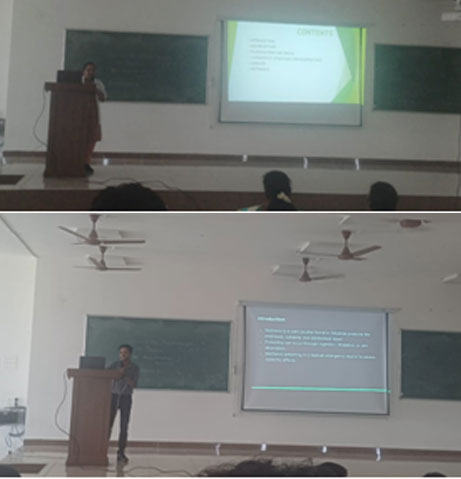
Exposure to real-life prescription audits and ADR (Adverse Drug Reaction) reporting activities to promote awareness of drug safety.
Coordination with other departments for system-based integrated teaching (e.g., General Medicine, Dermatology, Psychiatry).
In line with the NMC’s Competency-Based Medical Education (CBME), students maintain logbooks documenting skills and competencies
we developed structured elective topics like
Faculty guide students through their elective project work, presentations, or mini-research assignments. Assessment based on logbooks, reflections, presentations, and written reports as per NMC guidelines.
Electives in pharmacology help students build competencies in drug safety, regulatory science, medical writing, and research ethics—useful for careers in academia, pharma industry, or clinical research.
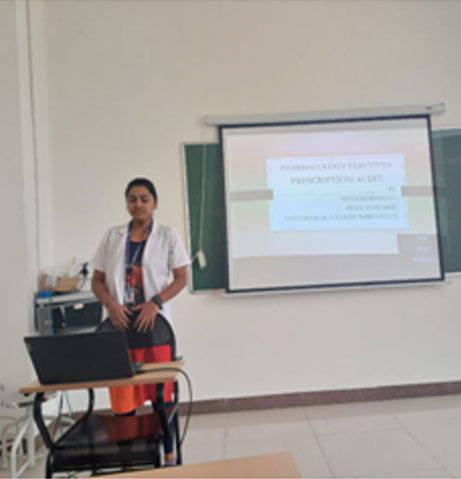
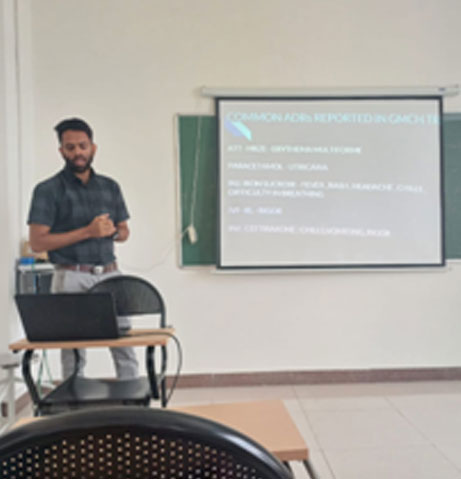
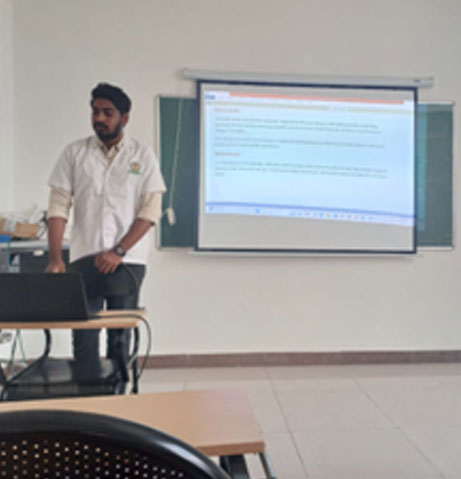
During the 3 month DRP posting, DRP pharmacology postgraduates engage in academic activities like seminar, journals ,new drug presentations, practical teaching sessions and clinical activities like prescription auditing , identify and reporting of ADRs. They will be maintaining a DRP log book detailing daily/weekly activities and observations
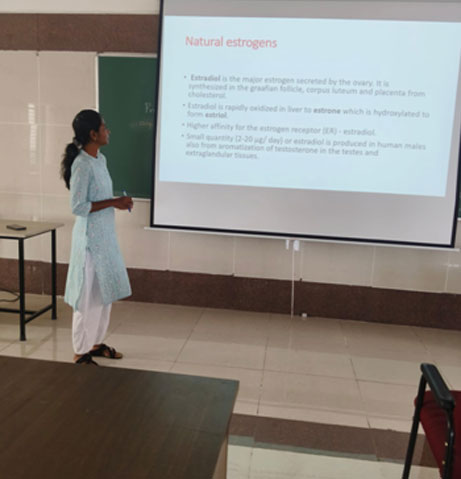
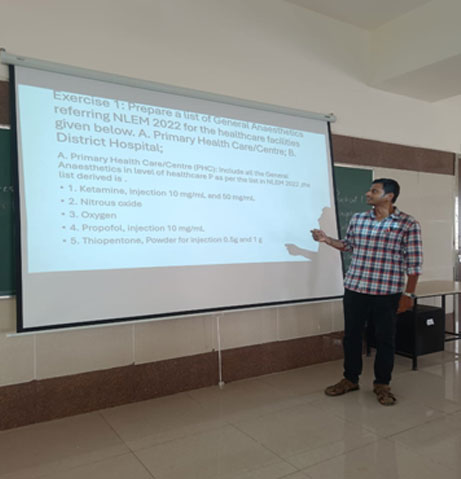
The Department of Pharmacology has consistently demonstrated excellence in academics and research.
Consistently high performance by undergraduate students in university examinations.
Successful implementation of innovative teaching methods such as Computer-Assisted Learning (CAL) & case-based discussions,
Regular organization of CME programs, Quiz programmes for students & National Pharmacovigilance week Programmes
Faculty have published research articles in peer-reviewed national and international
journals.
Ongoing research projects such as pharmacovigilance, clinical pharmacology and drug
utilization studies in Collaboration with clinical departments.
| Completed Research Project | ||
S. No |
Name of the Investigators and Co-investigators/Guides/Co-guides | Title of the Research Project |
| 1 | DR. N. ASVINI | Drug prescription pattern at outpatient department in a tertiary care teaching hospital in Tamil Nadu |
| Ongoing Research Project | ||
S. No |
Name of the Investigators and Co-investigators/Guides/Co-guides | Title of the Research Project |
| 1 | Dr.Hephzibah Magdalene | Pharmacovigilance studies in plantinum based chemotherapeutic agents in oncolog - a meta analysis |
| 2 | Dr.Nishanthini | Drug utilization study of antidepressants in the psychiatric unit of a tertiary care hospital - an observational study |
| 3 | Dr.Jaypriya, Dr.Amutha | A study on the Determinants of Heavy menstrual Bleeding in Patients at a teritary care hospital |
| 4 | Dr.Asvini,Dr.Akila | Cinico-Demographic study of Snake Bite Envenomation at a Teritary care centre |
| 5 | Dr.Sharmila, Dr.Nishanthini | Comparison of efficacy and safety of metfromin-vidagliptin combination - an observational study in a teritary care hospital in Thiruvallur |
| 6 | DR. E. Hepsibha Magdalene | Evaluating quality of life among cancer patients attending pain and palliative care clinic - A hospital based cross sectional study. |
| 7 | Dr.Amudha | Drug utilization and evaluation of antidiabetic drugs among type -2 DM in tertiary care |
| 1. | Tamilmathy,B Kalaimathi, M Kulandaiammal, B Sharmila. Knowledge about COVID -19 Medications: A Pre-admission analytical study in corona screening centre. Indian journal of applied research. May 2021;5:11-15. |
| 2. | B Sharmila, Nithya Priya, E Amudhan Arvind. Effect of bromocriptine quick release on serum lipid levels in type 2 diabetes mellitus patients- An open label randomized controlled study. Indian journal of applied research. May 2022;12:1-4. |
| 3. | J Vineeta Debbie Nesam, M Kulandaiammal, N Asvini, B Pushpa. A clinical Therapeutic Correlation in Poisoning Cases – A Retrospective analysis in a Tetiary Care Hospital.Indian Journal of applied Research. May 2021;11(5). |
| 4. | E Hephzibah Magdalene. K M Sudha, J Joseph Jeremiah. Effect of add on therapy with omega 3 fatty acids among diabetic and non-diabetic dyslipidemic patients on random blood glucose- a comparative, randomised, open label, prospective Study. International Journal of Pharmaceutical Sciences and Research. March 2025;15(3): 758-764. |
| 5. | 5. J Komathi, C K Devipriya, G Amudha B Bhuvaneswari.A Randomized Controlled Trial to Assess the Efficacy of Topical Besifloxacin 0.6% versus Moxifloxacin 0.5% in Bacterial Conjunctivitis.International Journal of Scientific Study. September2021;9(6). |
S. No |
Topic | Date | Details (if any) |
| 1. | Hands on workshop in protocol writing | 26.03.25 | Hands on workshop in protocol writing was conducted in collaboration with CIRI-COGUIDE RESEARCH INTENSHIP for the 43 research and their mentors. |
| 2. | Pharm hunt intra mural quiz for 2nd year MBBS | 12.09.24 | Pharm hunt-24 -Intramural quiz in pharmacology was conducted on 12.09.2024 for the selected 2nd year MBBS Students.A writen prilimnary round was conducted on 30.08.24 for all the students. |
| 3. | CME on Elixirs for skin and heart | 18.09.24 | The CME focused on adversed drug reaction in skin,recent advances in pharmacovigilance.The speakers elaborated on various perspectives in cardiovascular pharmacology.The event was accredited with TNMGRMU credit points of 5 and TNMC credit hour of 1. |
| 4. | Inter college quiz program, Pharmheist 2.0 at Govt. Medical college kallakurichi. Students of 2022-23 batch got 5th prize | 27.09.24 | "Pharmheist 2.0" Inter -college quiz competition conducted by Department of Pharmacology, Government Medical College,Kallakurichi on 27th September. 3 students from 2nd year (2022-23) MBBS Batch Participated and got the 5th prize. |
| 5. | CME on Good clinical Practice- An update | 12.04.23 | Department of pharmacology conducted the first CME ON "GOOD CLINICAL PRACTICE" Which is accredited with TNMGRMU credit points of 10 and TNMC credit hour of 1. |
| 6. | National Pharmacovigilance week celebration | 17th to 23rd september 2023 | The Pharmacovigilance week was celebrated with awareness program to out patients in attending Government hospital,Thiruvallur and Avadi Urban Primary Health Centre. A poster competition in pharmacovigilance was conducted for the students and prizes were distributed. An orientation program above pharmacovigilance was conducted for the CRMI and DRP PG's. |




